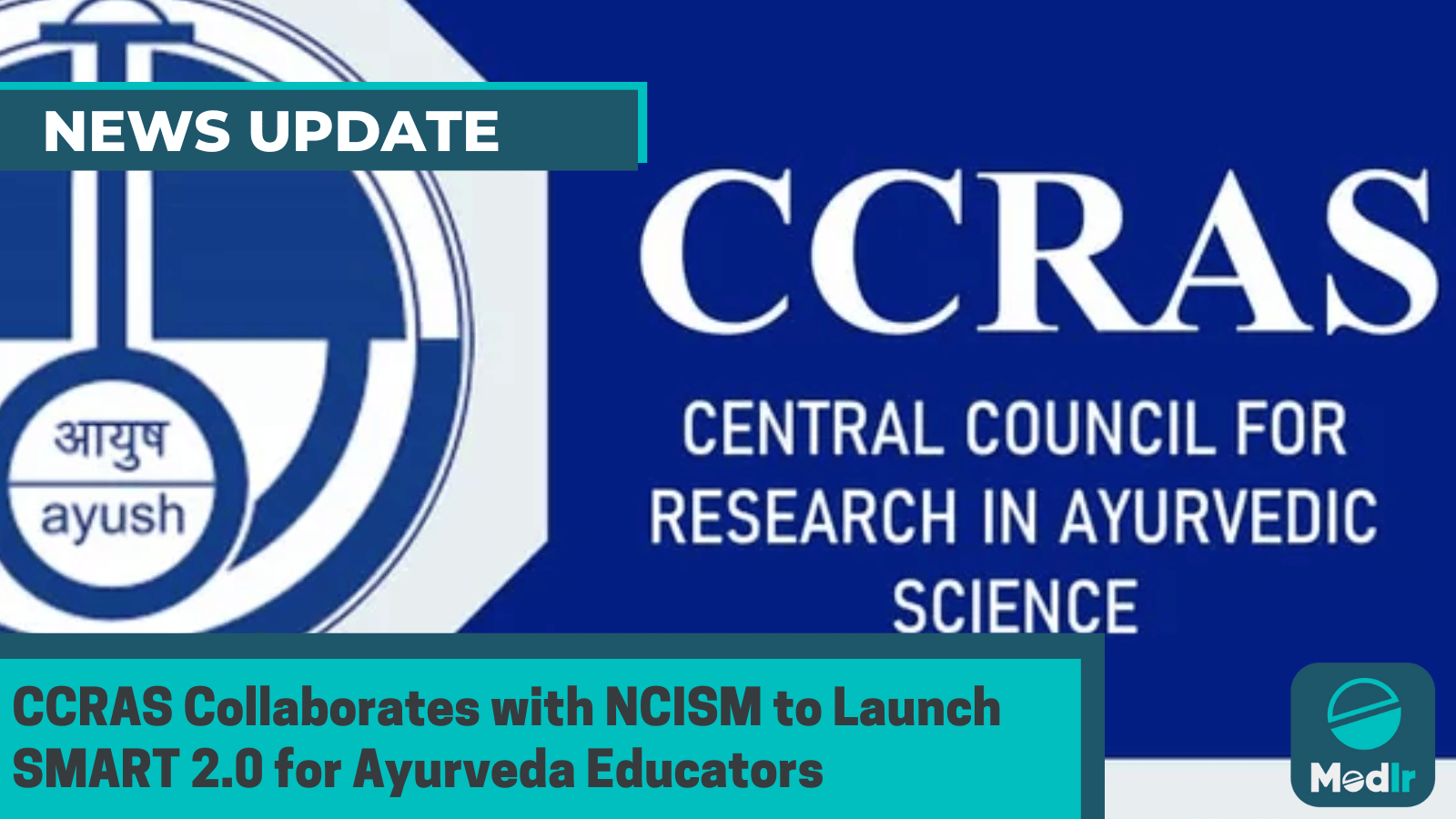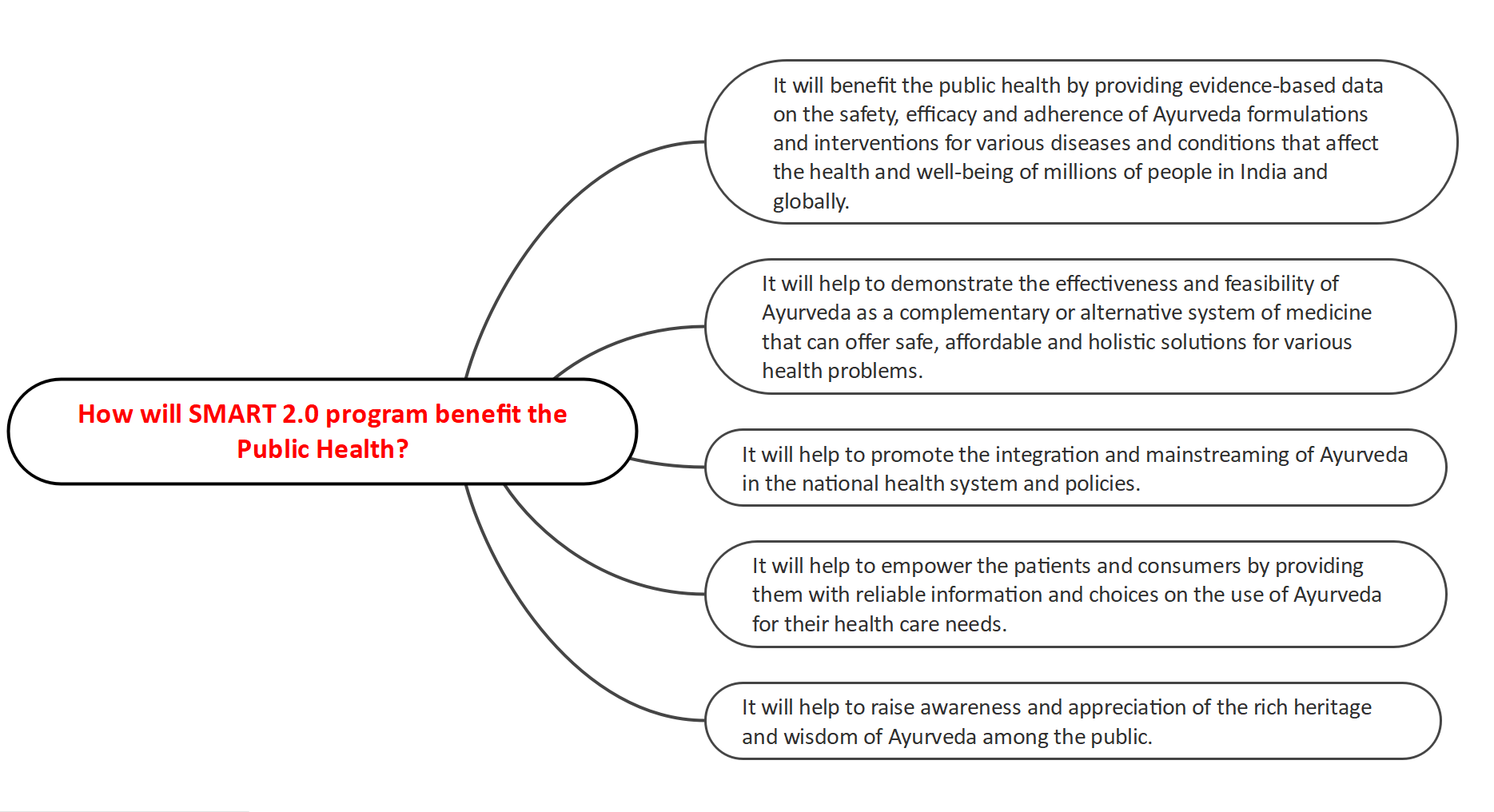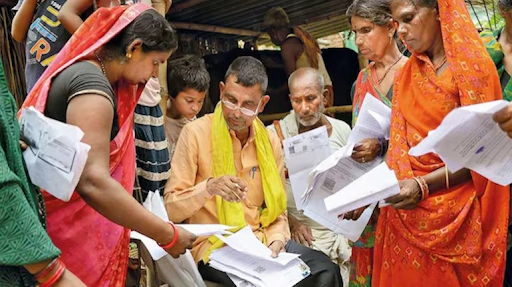Description

Copyright infringement not intended
Picture Courtesy: medlr.in
Context: The Central Council for Research in Ayurvedic Sciences (CCRAS) and the National Commission for Indian System of Medicine (NCISM) have launched the 'SMART 2.0' program.
About 'SMART 2.0' program
- The 'SMART 2.0' program, initiated by the Central Council for Research in Ayurvedic Sciences (CCRAS) in collaboration with the National Commission for Indian System of Medicine (NCISM), aims to promote robust clinical studies in priority areas of Ayurveda through collaboration with Ayurveda academic institutions and hospitals across India.
- The program aims to generate evidence-based data on the safety, efficacy and adherence of Ayurveda formulations and interventions for various diseases and conditions. It intends to enhance the research capacity and skills of the teaching professionals and students of Ayurveda through training, mentoring and guidance.
The program covers six priority research areas of Ayurveda
- Bal Kasa: A respiratory disorder in children characterized by cough, wheezing, breathlessness and fever.
- Malnutrition: A condition resulting from inadequate intake or absorption of nutrients, leading to impaired growth, development and immunity.
- Insufficient lactation: A condition where a mother is unable to produce enough breast milk for her infant.
- Abnormal Uterine Bleeding: A condition where a woman experiences irregular or excessive bleeding from the uterus, which may affect her quality of life and fertility.
- Osteoporosis in post-menopausal women: A condition where the bones become weak and brittle due to loss of bone mass and density after menopause.
- Diabetes Mellitus (DM) II: A chronic metabolic disorder where the body cannot regulate the blood glucose level properly due to insulin resistance or deficiency.

Significance of the SMART 2.0 program
- SMART 2.0 program is important for Ayurveda research because it will help to generate high-quality evidence on the safety, efficacy and adherence of Ayurveda formulations and interventions for various diseases and conditions that are prevalent in India and globally.
- The evidence generated by the SMART 2.0 program will help validate the scientific basis of Ayurveda principles and practices and showcase its potential for addressing various health challenges.
- It will enhance the credibility and acceptance of Ayurveda among the scientific community, policymakers, healthcare providers and the general public.
- It will strengthen the research capacity and skills of the teaching professionals and students of Ayurveda by providing them with training, mentoring and guidance on various aspects of clinical research.
- It will create a network of Ayurveda researchers and institutions that can collaborate and share their knowledge and experience for advancing Ayurveda research.
|
SMART 1.0
●The SMART 2.0 program builds upon the success of its predecessor, SMART 1.0.
●Under SMART 1.0, around 10 diseases were covered, and teaching professionals from 38 colleges actively participated in the research activities.
●SMART 2.0 program aims to build on the achievements and learnings of the SMART 1.0 program by covering new diseases and conditions that are relevant for Ayurveda research and practice.
|

Conclusion
- The SMART 2.0 program represents a collaborative effort to advance research in Ayurveda, focusing on specific priority areas and involving academic institutions in conducting clinical studies to generate robust evidence for the efficacy and safety of Ayurvedic interventions. The emphasis on interdisciplinary methods and the translation of research into public healthcare underlines the program's commitment to bridging the gap between traditional medicine and modern healthcare practices.
Must Read Articles:
‘Ayurveda For One Health’ Campaign: https://www.iasgyan.in/daily-current-affairs/ayurveda-for-one-health-campaign
|
PRACTICE QUESTION
Q. Why is the SMART 2.0 program currently making headlines?
A) It focuses on promoting yoga practices in educational institutions.
B) It aims to study the efficacy and safety of Ayurvedic interventions in specific research areas.
C) It emphasizes modern medical treatments over traditional Ayurveda methods.
D) It solely targets research on mental health disorders.
Answer: B
Explanation:
The SMART 2.0 program has gained attention due to its focus on conducting clinical studies to evaluate the safety and efficacy of Ayurvedic interventions in priority research areas, as mentioned in the program details.
|









